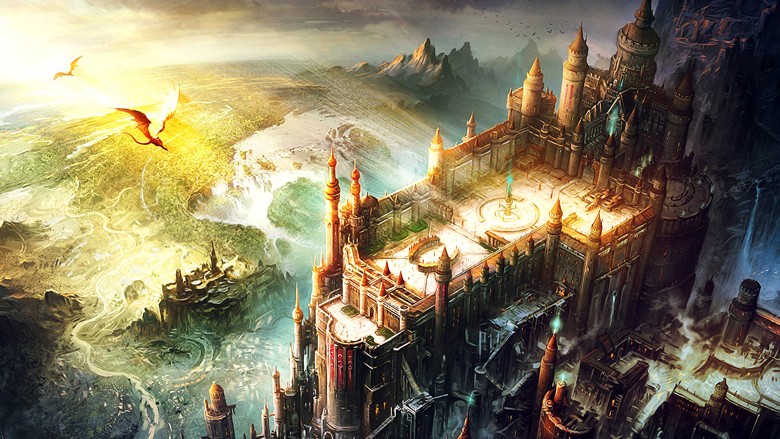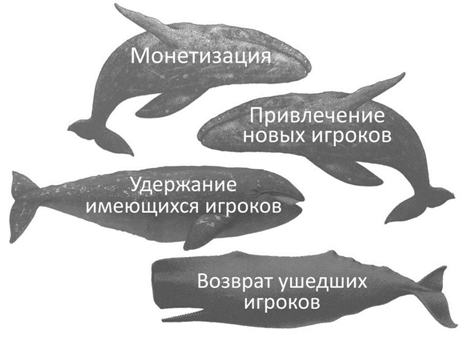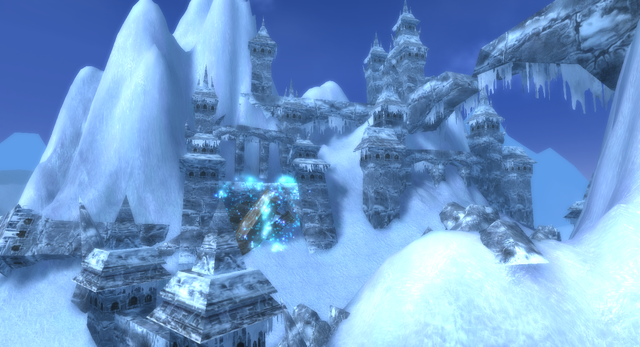Basics of operating online projects
You can find out how to operate online games in our material based on the motives of Vyacheslav Utochkin, who worked on Perfect World and Armored Warfare.

Vyacheslav defines operating as launching a game project and supporting its successful functioning on the market.
When talking about operating, we can talk about running our own project, or a third-party one, purchased under license from an external developer, for example, from a Chinese or Korean company. Moreover, some of the companies existing on the market are just engaged in taking over the operation of third-party games. This is how one of the divisions works Mail.Ru 101XP is doing this, as well as a number of young companies like Overgamez.
Vyacheslav emphasizes that the operation significantly depends on which platform the project is published on.
For example, when operating on iOS, until recently it was necessary to put an additional two weeks in the distribution update grid. The approval process of the new version of the app by the editors of the App Store took about as long.
Be that as it may, there are always four main points in operating any product on any platform, which under no circumstances should be forgotten. We are talking about monetization, attracting new players, retaining existing players and returning departed players.

All these four “whales” should complement each other harmoniously. Only together these processes make it possible to effectively support the product, please players and earn money.
Monetization
It’s no secret that monetization is directly responsible for how much money the user leaves in the game. Usually, the type of monetization, the number of funnels used in the game, and so on are introduced into the project at the design document stage.
And, it would seem, what does the operator have to do with it? Let’s look at a situation in which monetization is directly affected by the game operator.
There is a shareware game that brings, on average, X rubles daily. As part of the product, we can introduce the simplest promotion. For example, to everyone who will invest in the game from the first to the fifth of July:
- from one hundred to one thousand rubles – 10% bonus to the payment;
- from one thousand to three thousand – 20% bonus to the payment;
- over three thousand rubles – 30% bonus to the payment.
Simple? Yes! All you need to do is write news on the project’s website and other channels of interaction with users, draw a banner, program the mechanics, coordinate the action with the developer, and other small things. Then, roughly speaking, we press the button and get a significant increase in income for the period of the promotion. But not everything is so simple: in order not to “kill” your project, monetization campaigns should be launched in accordance with certain principles of the operation’s monetization policy.
The shares themselves are also a separate and big conversation. They are divided into simple and complex, promotions with money and gifts, promotions on the website and inside the game, and the like.
Attracting new players
Operating is not only conducting, but also launching the game. However, in both cases, the project always needs new players. So you always need to engage in attraction. Key player engagement activities begin in the process of preparing for the launch of the game. And after the launch, so that the audience does not burn out, continuous work is underway to attract new players both through the purchase of direct traffic and PR activities, subsequently organics, special projects, etc. According to Vyacheslav, the price of one player for a client MMO game is now 100-300 rubles, in browser – 30-60 rubles. As for the world prices for mobile downloads, they can always be viewed on the Chartboost website.
Retention of existing players
If you think only about attracting and monetizing players, then you can get carried away, but you never get the main thing for which the operation was started – money. The player should not only be persuaded to download the game and throw “delicious” offers. He must be restrained.
Of course, it is believed that retention is the element that the game designer of the game thought out “from A to Z”. But it so often happens that “in the field” it turns out that not everything in the game works smoothly. The operator can smooth out the existing roughness without distracting the developer’s resources, as well as strengthen the action of even well-working mechanics.
Vyacheslav gives an example from Perfect World. The game has a dungeon “Frost”, which is very popular with players. But with each update of the game, the rewards that were given in this dungeon lost their value due to the introduction of new content. In the end, the depreciation of the rewards led to the fact that the cost of completing this dungeon exceeded the rewards received. And the players stopped going to this dungeon.

In order to return this dungeon to the “daily activity of players”, the campaign “Marathon in Frost” was implemented. As part of the campaign, a calendar was introduced on the site, in which one day was closed when a player passed a dungeon in the game. If a player closed 10 dates within 14 days, he received a bonus that not only covered the costs, but also brought in a plus. And if 14 days out of 14, then another “fat” gift. As a result, the players returned to this dungeon, happily began to pass it, retention improved, and the operator also received additional income, as players began to actively buy consumables for the passage of “Frost”.
Thus, the promotion, implemented entirely on the operator’s side without involving a developer, allowed to improve the retention of players.
Return of the departed players
The return in surgery is often forgotten, although this is the most important element. It saves you money: returning players costs significantly less than buying new ones.
Talking about the return, Vyacheslav gives the following abstract situation: your game has been running for about a year. The number of registrations is 3 million. But at the same time, the MAU is much smaller. For example, 100 thousand. Where are the other players? The others have already left.
What can be done?
Suppose a significant update is coming out. By its release, you make a mailing list with a gift for those who will return to the database of departed players. Don’t need a lot of text. It is useful to make the invitation concise, with beautiful art and highlight a large “pick up a gift” button, plus the name of several major innovations 1-2 words for each.
Was it sent to a million? The newsletter was successful and you received 5% of conversions? And 5% of them are still in the game? So you got 2500 users back without much internal effort.
You can act more targeted. For example, if you notice that a decent number of users who have previously spent, for example, more than 5 thousand rubles have left the game (or, worse, stopped paying) for a year, you can make a selection of the addresses of these users and send a letter (e-mail, retargeting, in-game notifications and even SMS) with a unique an offer to enter the game in a certain period and make a payment up to a certain amount, while receiving a bonus x2 or x3 to the payment. As a result, you can increase your average monthly income by several percent. After investing a small amount and returning “to the right path”, paying players for the most part continue to invest money in excess of the bonus limit. And, as you know, in a number of games, several percent of monthly income is six or seven– and other multi-digit numbers.
Thus, by harmoniously managing these four whales of operation, it is possible to significantly improve the income of both your own game and those taken under license from our overseas colleagues. Well, in order to manage them, you need a team. For more information about the team, see Vyacheslav’s lecture notes on the HSE website.
And what do you think is important in surgery?
The material was written on the basis of an open lecture “University open to the City: Lectures by HSE young scientists at the ZIL Cultural Center”, delivered by Vyacheslav, Director of training programs for the gaming industry at the Higher School of Business Informatics of the HSE Utochkin.You will be able to learn about the latest trends in the gaming industry first-hand, personally meet and discuss working issues with leading companies in the game development and publishing market at White Nights St. Petersburg 2016, which will be held on June 28-29.